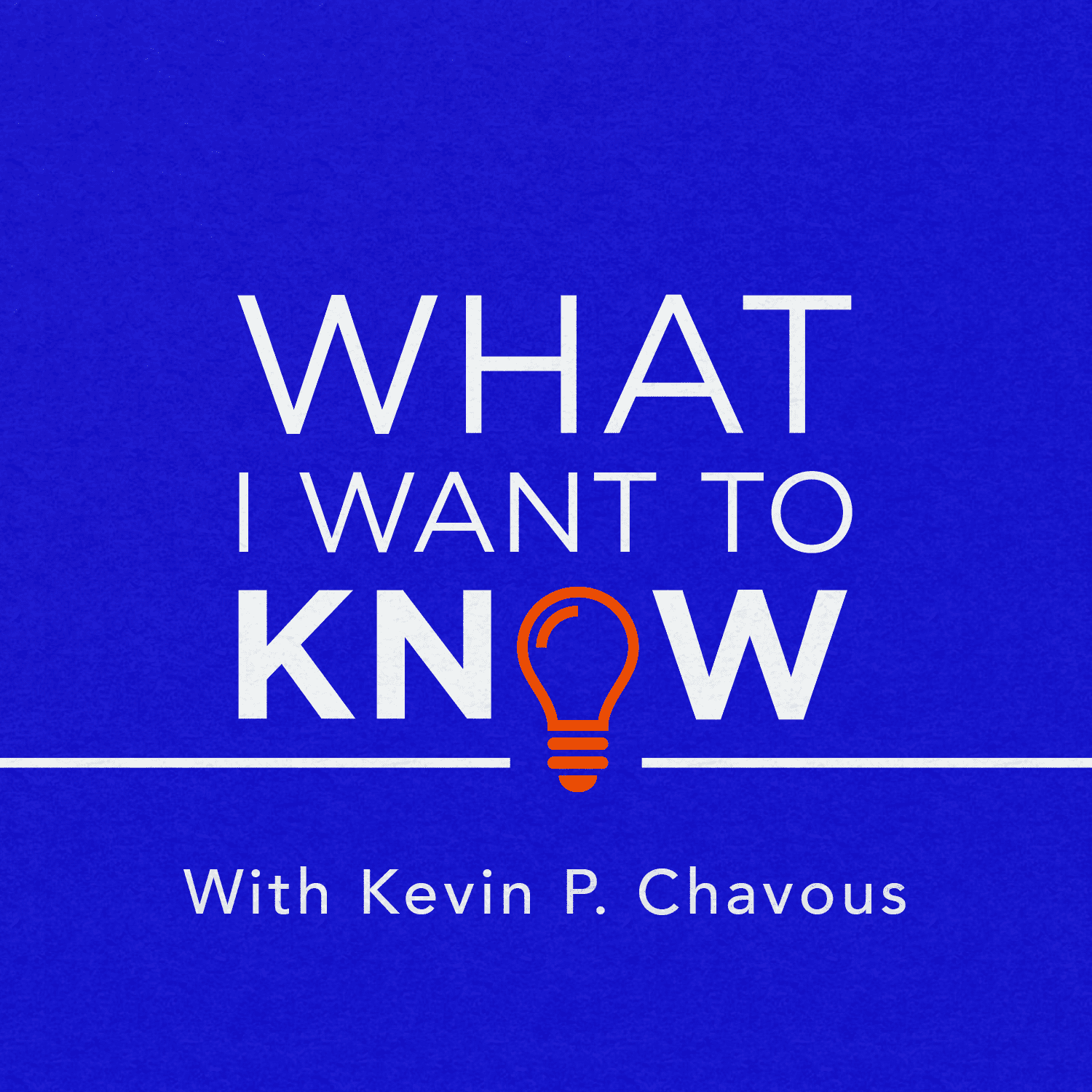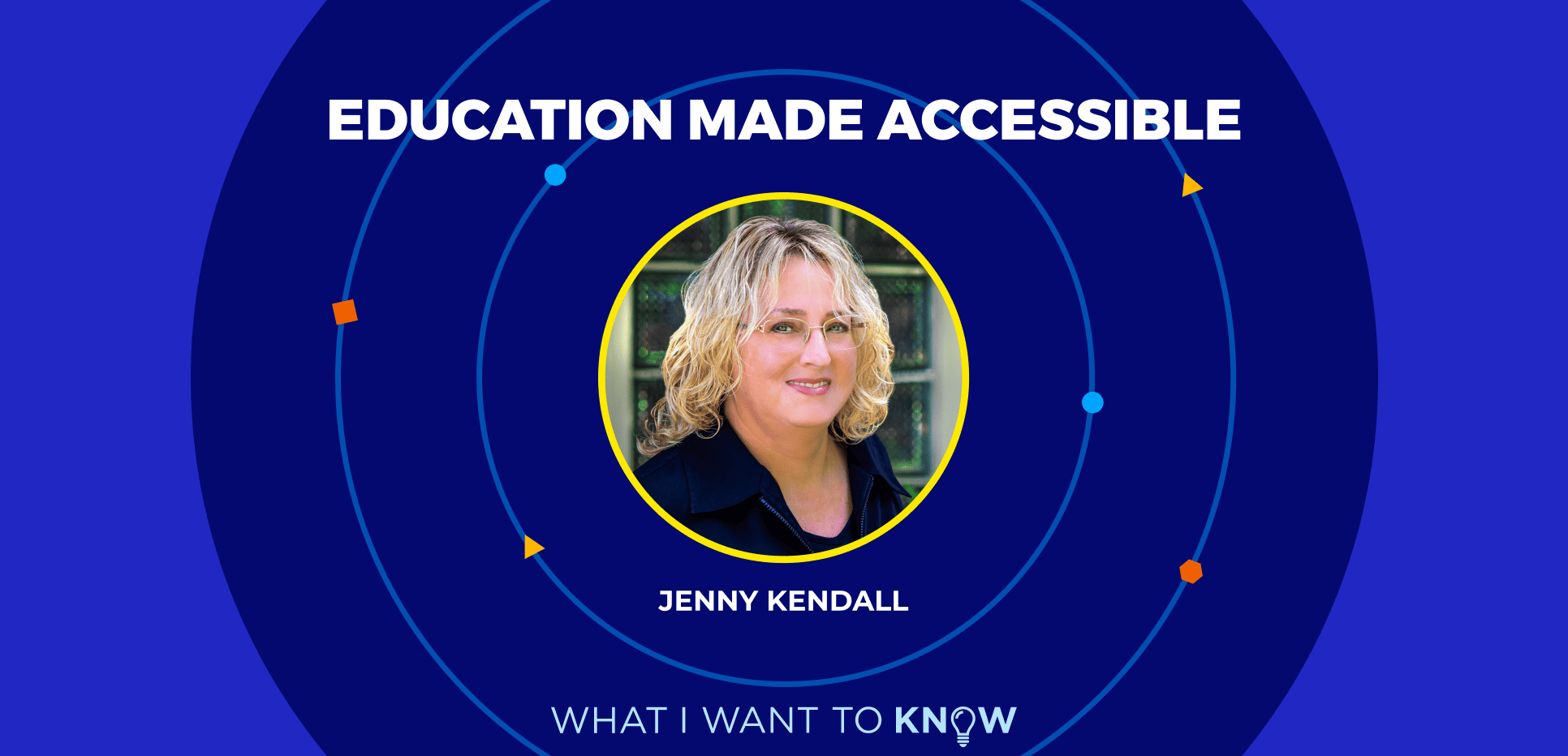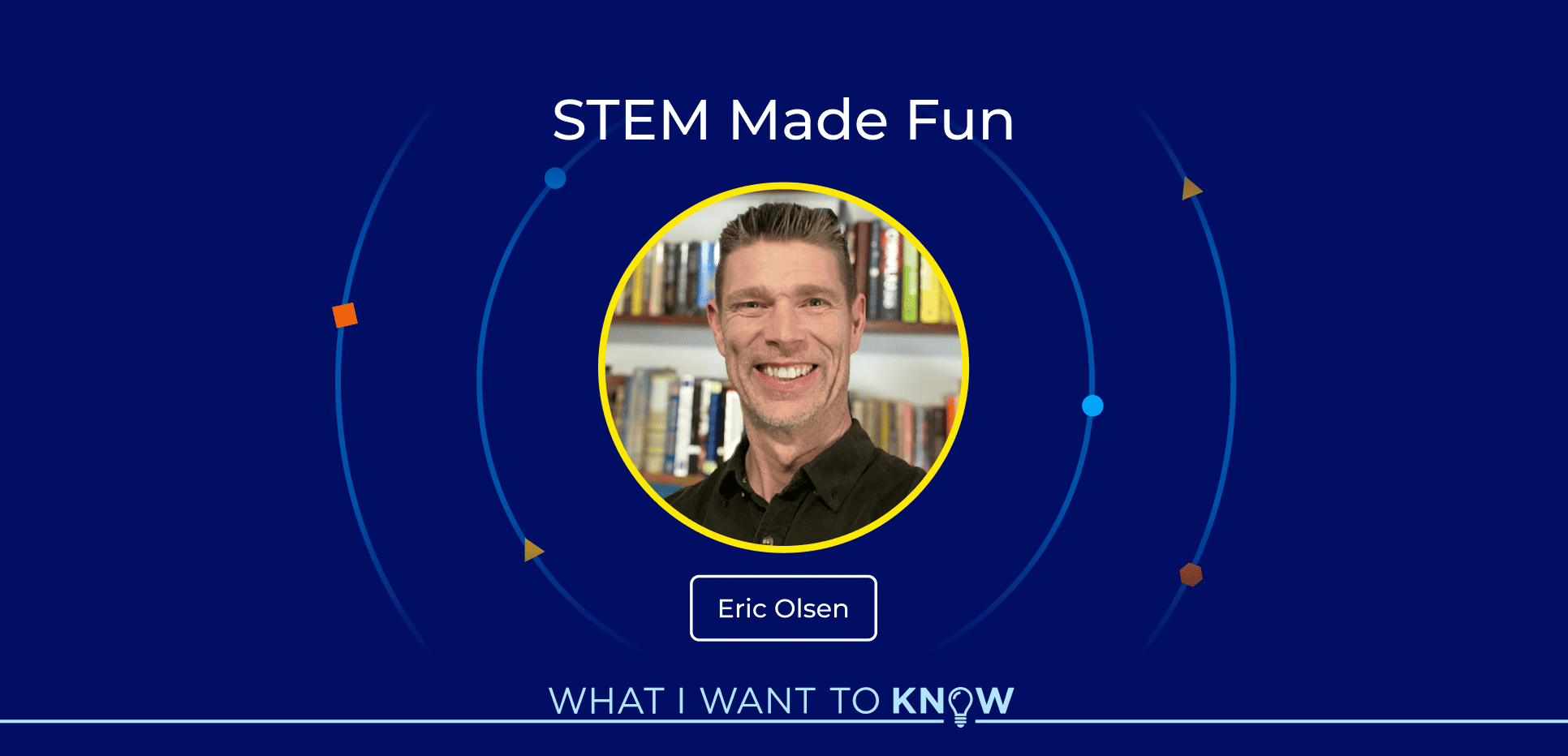Education is transforming at lightning speed. While we once imagined AI, virtual reality, and personalized learning as distant possibilities, today, they’re reshaping classrooms worldwide.
But the big questions remain. How do we ensure these powerful tools reach every student? How do we help teachers adapt? And most importantly, how do we use tech to genuinely improve learning and not just digitize the status quo?
Jeffery R. Young joins Kevin in this episode to walk us through this evolving education landscape.
Listen to the Full Audio
Listen on: Apple Podcast, Spotify
Transcript
JEFFREY YOUNG: Education is a wicked problem. It involves lots of other issues, which makes education coverage so interesting. But it also makes the solutions not simple, silver bullet issues.
KEVIN P. CHAVOUS: Education is transforming at lightning speed while we want to match an AI. Virtual reality and personalized learning, as distant possibilities today, they’re reshaping classrooms across the globe.
JEFFREY YOUNG: Different technologies come around and the same conversations ended up happening. Um, so there is a, a sense of déjà vu.
KEVIN P. CHAVOUS: But the big questions remain. How do we ensure these powerful tools reach every student? How do we help teachers adapt? And most importantly, how do we use tech to genuinely improve learning, not just digitize the status quo? Here to guide us through this evolving landscape is Jeffrey R. Young, former senior editor at EdSurge and host of their influential weekly podcasts.
KEVIN P. CHAVOUS: He spent years on the front lines of education, technology, tracking the innovations that are reshaping how we teach. And how we learn. Jeffrey, welcome to the show. Jeff. I’ve been looking forward to having you on. Uh, there’s so much to unpack with this changing landscape of education. But first, um, what drew you to this field?
KEVIN P. CHAVOUS: Wanted to be a—
JEFFREY YOUNG: Reporter in the sort of days when the internet was still kind of new, was before iPhones and iPads for especially younger folks. I was really interested in covering that space of how technology was changing society. I ended up finding a reporting job at The Chronicle of Higher Education, and it really let me—
JEFFREY YOUNG: Have this front-row seat to talking to people that were theorizing, experimenting, and imagining a world where people could be connected, not just by geography, but to people that were outside their immediate, just who they happen to live near or be near. Yeah. It was a place where I was able to cover the tech and talk to people.
JEFFREY YOUNG: I got to sit down with Steve Jobs once and interview him because he spoke at an education conference when he was trying to get—make sure the Mac was still relevant back in the day. I really fell in love with education coverage. The more I did it, it didn’t take long because the issues that professors and education leaders—
JEFFREY YOUNG: Were facing were so interesting to me. I ended up covering other things within education and shifting over time, not just on technology, but covering college admissions and other aspects of how education plays such a huge role in opportunity in America. You know, different technologies come around and the same conversations ended up happening.
JEFFREY YOUNG: There is a sense of déjà vu and I find myself in my writing and in journalism, just reminding people in some ways, just pulling up those past—been there, done that. Well. Yeah, and, and, and I think, I think you’re asking a great question. I don’t know if anyone has the answer, but I do think it’s worth remembering, right?
JEFFREY YOUNG: Yes. That these conversations and—and not in negative—
KEVIN P. CHAVOUS: I do sense there’s a little—almost like there’s been an edtech fatigue that took place. Mm-hmm. Mm-hmm. You know, where people are feeling like, hey, you know, we are hearing this. But that leads me to the changing landscape of our learning environments.
KEVIN P. CHAVOUS: I do have the feeling that some of that optimism and even a little fear is coming back because of AI and ChatGPT and, and some of these emerging technologies talk. Let’s talk a little bit about that. Trends come along. It is, the—
JEFFREY YOUNG: Question is like, is this time can we get excited for real? Yeah. And I think, you know, I think it’s, it’s both excited and, and some would say fear, you know, like he, he, yeah.
JEFFREY YOUNG: Yeah, because there’s also the case that some people maybe don’t want the change. So how worried should they be? Or how the optimists—how excited should they be? What is really gonna change? And I just—one more, like back in 10 years ago, I think of the MOOC, the massive open online courses that was in the college space and, and you know, that was a big moment where college professors said, let’s just open up—
JEFFREY YOUNG: Our teaching and say, anybody can download our Stanford course, Harvard course, or MIT course, and we’ll make the assignments available and make it all out there and people can, you know, self-study and—and this’ll be a, a big changer. And then I think the, you know, I think that it didn’t—there was a moment—
JEFFREY YOUNG: Where it seemed like that was gonna change a lot of things, but—
JEFFREY YOUNG: Now it made some changes, but it didn’t end college as we know it, the question, and that was seen as something very different than previous zones. But I think with AI, since that is the moment we’re in, I think there is a question whether this could have a bigger impact. And I think partly because unlike some of these previous technologies, there’s a lot of uncertainty around how much it’s gonna change the workforce and a lot of white-collar jobs, the kind of jobs that colleges—
JEFFREY YOUNG: And the education system, the K–12 and college system have traditionally prepared people for. And so I think that’s kind of one of the questions I’m wondering is like, you know, the biggest change and those other examples were like changes in method for teaching practice. Yeah. And there’s some of that obviously with, you know, can AI tutor and then could that help jumpstart learning—
KEVIN P. CHAVOUS: I think with AI and career learning, the old school, you know, you, you have OCED or all that, but—
KEVIN P. CHAVOUS: Because the technology, sort of the, the AI technology bleeds into both areas. School-to-career programs are, are vastly different now. Kids who getting their certifications and going straight into the workforce. In fact, a, a kid with a computer programming certification graduating from high school will—
KEVIN P. CHAVOUS: Make more than a kid with a computer science degree in college because they have the certification already. And so I, I wanna get your thoughts on that. You know, I—
JEFFREY YOUNG: Think it’s interesting. I’ll be interesting to see how much of that is happening compared to the past. Yeah. I think one of the trickiest things is that I’m seeing uneven or inconsistent policies, even in places that use AI or that are buying AI for their employees.
JEFFREY YOUNG: And part of that, the fear too. Those inconsistent policies—is it fear that the companies aren’t adopting it, or is this a mix of wanting to wait to see what the use cases are? It happens a lot in Silicon Valley where you have a technology tool that is exciting and new, but you’re not exactly sure what it is that it’s, you know, used to say killer app, like killer application is that it’s gonna be the thing that really makes—
JEFFREY YOUNG: That—that really gets people to use it.
KEVIN P. CHAVOUS: Tech, you—
JEFFREY YOUNG: Know—
KEVIN P. CHAVOUS: So many people have complained about the cost of college. If you’re able to get those skill certifications and not go to college, more and more people are questioning, you know, the value of getting that four-year degree, particularly liberal arts degree.
KEVIN P. CHAVOUS: Having that debt, I mean, what are your thoughts around that and how higher ed needs to be more responsive to everyday people and their, their fears. Even if they wanna send their kid to college, if they see value in going through a career path in high school that leads to a good—
KEVIN P. CHAVOUS: Job, good career, and not have the debt, that’s become a real thing.
JEFFREY YOUNG: Yeah, well I did a podcast series for the EdSurge podcast called Doubting College that ran not too long ago and really dug into those questions. I think, you know, I personally am not coming down either way on this, but you are right. There is a change in the conversation around whether to go to college for a lot of people leaving high school.
JEFFREY YOUNG: It’s an interesting time. I got to spend some time in a high school here in St. Paul, Minnesota and talk to students and guidance counselors, what is really different? Because everything’s changing and what was it really like on the ground? I went to a high school called Central High School, which is one of the oldest high schools in the state of Minnesota—public high schools—and they have a good track record of sending diverse students to college.
JEFFREY YOUNG: So they’re a great place to prepare students for college. But a lot of student, you know, more students there in the past are doing gap years. More students are—mm-hmm—doing a lot more career exploration, so to speak, in the high school. Like before, like trying to figure out why college, not just default to college.
JEFFREY YOUNG: And I think, you know, that seems like one of the big changes. Not necessarily. So there is a skepticism of like, instead of just saying like, of course. You’ll go because it’s the thing to do—more students, even those that can afford it, you know, without too much stress—but especially those who it’s a little harder or are gonna be taking out more of those loans were, you know, let’s, let’s figure out a plan before jumping in.
JEFFREY YOUNG: Yeah. And a lot of it came from hearing from cousins or people that they’d seen. Go through it without a plan and not feel like they could use their degree right away. And so I think that some of it was a consumer savvy that was happening and a different conversation around instead of this idea of like, oh, if a college takes me, that’s great to like, what is—
JEFFREY YOUNG: The right college that wil actually help me achieve what I want. Whether that’s a specific career or something else. It’s less about prestige and more about fit and outcome. I think that shift is real.
JEFFREY YOUNG: And colleges are responding in different ways. Some are trying to double down on liberal arts and the idea that education is about more than just jobs. Others are getting more practical—career services, partnerships with employers, even offering shorter credential programs.
KEVIN P. CHAVOUS: That’s an important distinction. Because for a long time, college was treated like a one-size-fits-all solution. But life’s more complicated than that.
JEFFREY YOUNG: Exactly. And the narrative is catching up with that complexity. You’ve got students who are making calculated choices based on ROI—return on investment—not just tradition or parental pressure. And they have to. The stakes are higher now with debt and job market uncertainty.
KEVIN P. CHAVOUS: That also ties into the rise of alternate pathways. Bootcamps, certifications, apprenticeships. They used to be considered fringe. Now they’re becoming viable options.
JEFFREY YOUNG: Right. And there’s a legitimacy now that didn’t exist before. Ten years ago, if you said you were skipping college to do a coding bootcamp, it raised eyebrows. Now it might raise your salary.
KEVIN P. CHAVOUS: I love that line—“now it might raise your salary.” And it’s true. We’re seeing this whole value shift, not just in students, but employers too. They care more about what you can do than where you went.
JEFFREY YOUNG: It’s a big recalibration. And I think it’s healthy. Because it opens the door for more people to define success on their own terms.
KEVIN P. CHAVOUS: And maybe even redefine what education is supposed to be. Not just a gatekeeper, but a gateway. A way to grow, explore, get skills—but not necessarily tied to this rigid four-year format.
JEFFREY YOUNG: Yeah, and it challenges higher ed to get more agile. To listen better. Because if they don’t evolve, they’re going to keep losing students. Not just to cost, but to relevance.
KEVIN P. CHAVOUS: You’re seeing that especially in community colleges and public universities. They’re on the front lines—trying to serve more diverse populations, working adults, first-gen students. And those folks are asking: “What am I really getting for this time and money?”
JEFFREY YOUNG: Right. And it’s not a cynical question. It’s a practical one. A survival one, even. It doesn’t mean they don’t value education. It means they can’t afford to get it wrong.
KEVIN P. CHAVOUS: And that forces innovation, right? In how classes are delivered, how success is measured, what partnerships are formed.
JEFFREY YOUNG: Exactly. Some schools are getting creative—stackable credentials, more internships, real-world learning baked in. They’re realizing that the classroom can’t be an island anymore. It has to be connected to the world students are actually walking into.
KEVIN P. CHAVOUS: That connection is everything. Because students aren’t just learning for learning’s sake—they’re trying to build lives. They want purpose. They want stability. And they want to feel like what they’re doing now is going to matter five years from now.
JEFFREY YOUNG: Absolutely. And I think that’s where education has the most potential—not just as a system, but as a human experience. When it works, it really changes people. But we can’t assume that just because we’ve always done it one way, it’s still the best way.
KEVIN P. CHAVOUS: That’s the heart of it. We’re in a moment where rethinking education isn’t optional—it’s essential. The question is, who’s willing to do the hard work of rebuilding it?
JEFFREY YOUNG: Yeah. And it’s not just on educators or policymakers. Students are a big part of this shift. They’re the ones asking tougher questions, demanding more transparency, more flexibility, more relevance. And honestly, that’s a good thing.
KEVIN P. CHAVOUS: It’s powerful. It means the future of learning could be something far more inclusive and dynamic than what we’ve had before. And hopefully, something that actually works for more people.
JEFFREY YOUNG: Let’s hope so. Because if we get it right, the ripple effects could be massive—economically, socially, personally. Education has always been the lever. We just have to make sure we’re pulling it in the right direction.
KEVIN P. CHAVOUS: Jeffrey, thank you for your insight, your honesty, and your time. This has been a conversation I think a lot of people need to hear.
JEFFREY YOUNG: Thanks, Kevin. Really enjoyed the conversation.
Meet the Experts
Meet Jeffrey
Jeffrey R. Young is the former senior editor at EdSurge and hosts their influential weekly podcast. He’s spent years on the frontlines of education technology, tracking innovations reshaping how we teach and learn.






